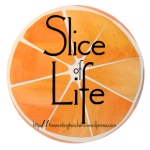(Each day in March, a whole bunch of educators are writing Slices of Life — capturing the small moments. It is facilitated by Two Writing Teachers. You write, too.)

Sometimes, opportunity presents itself. Yesterday morning, I was checking out the Twitter hasthag for #walkmyworld (a series of media-centric activities around the theme of identity and creation — see more here) when I noticed that Shawna had posted a digital poem. Of course, I was curious. And she was looking for feedback. I went there, at her blog site, to see what she had been up to.
It was a lovely rendition of a Georgia Heard poem about school and conformity and “straight lines” that we expect our students to fall into when they come into school, instead of the crazy zig-zag of life outside of school. I’m not philosophically opposed to imposing order on the day – and plenty of kids need that consistency, given the chaos of their lives at home. But Shawna did such a nice job.
I left her a comment (including a request to share out the “how she did it” at her blog) and then decided to go one step further — I decided to honor her poem by remixing it, via Webmaker Popcorn Maker. If you have not used Popcorn, it allows you to layer in various media and do other interesting things with online video. The remix does not affect the original. It only borrows it. Remix is a way to honor the original, and in this case, I was hoping to add a layer of my own art to Shawn’s art.
And of course, one of the beauties of Popcorn is the ability to remix the remix. So, why not give it a try? You can either click on the “remix” button at the top right of my Popcorn Project, or you can just click here and get started (no account needed to play around with the remix.)
See what you can make. And then maybe write about it.
Peace (in the share),
Kevin









